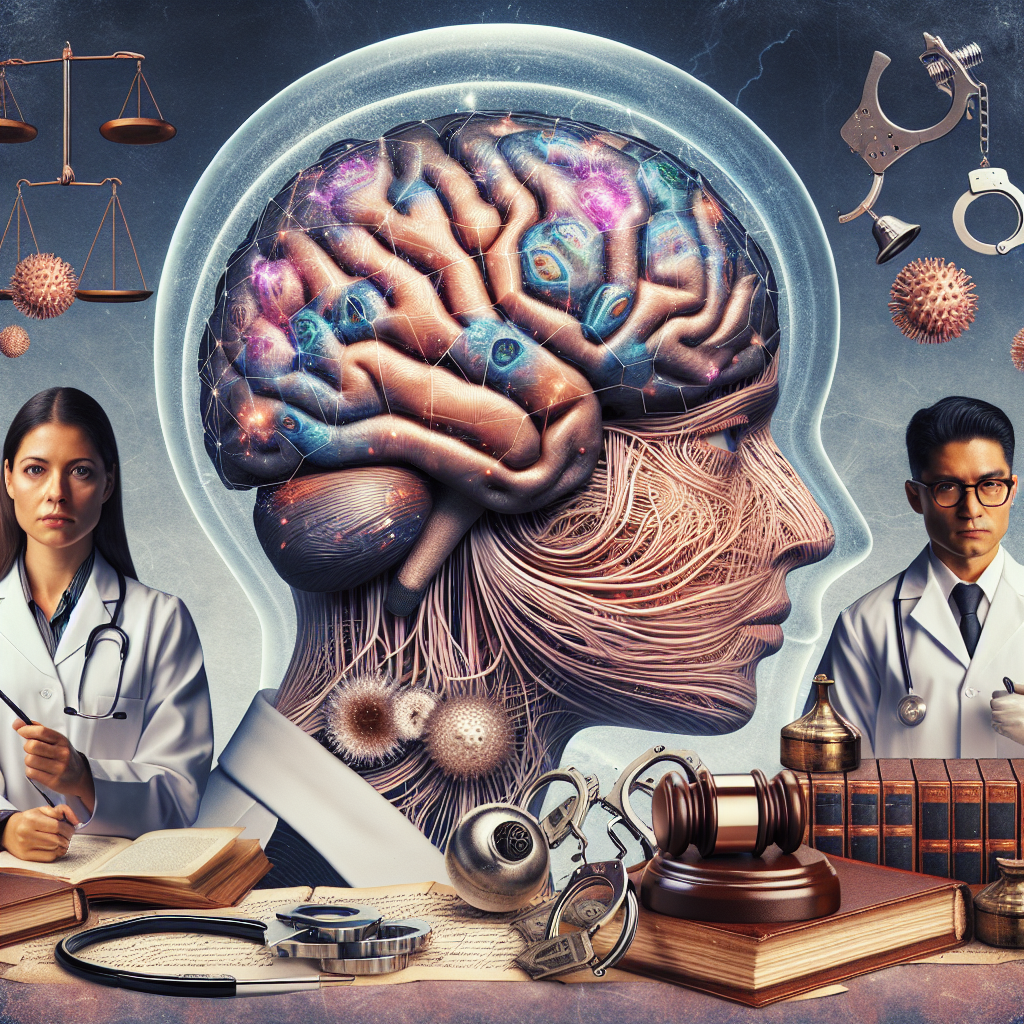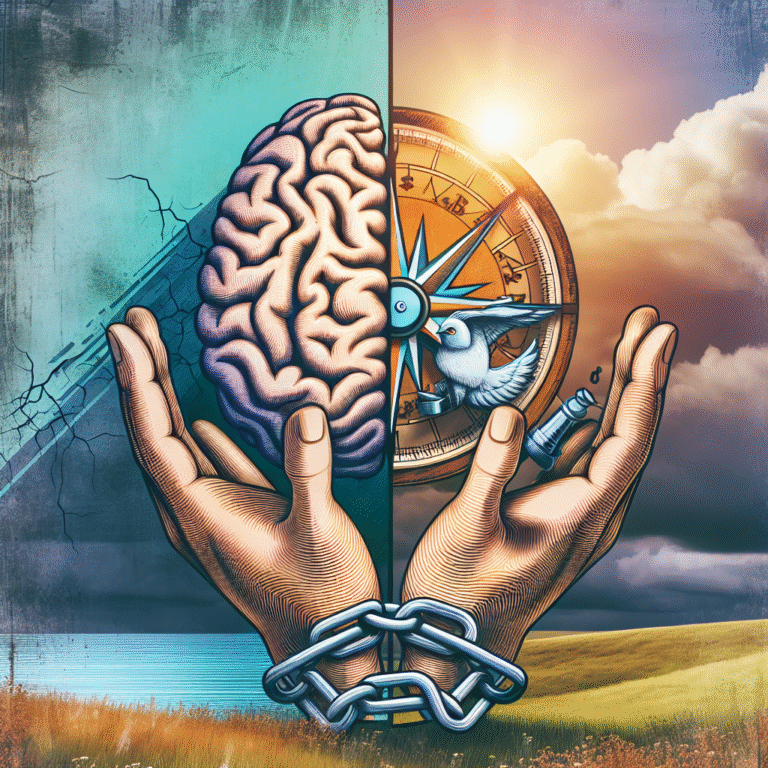
Introduction
The intersection of neuroscience and law has never been more critical than in today’s complex legal landscape. As we strive to understand the intricacies of human behavior, the role of cognitive function in criminal defense has emerged as a pivotal area of study. Exploring Cognitive Function: Neuropsychology’s Impact on Criminal Defense is not merely an academic exercise—it’s a vital component in formulating effective defense strategies for individuals facing criminal charges. This engaging exploration delves into the deep connections between neuropsychology, cognition, and the legal ramifications of criminal behavior.
Understanding Neuropsychology
What is Neuropsychology?
Neuropsychology is a branch of psychology that examines the relationship between brain function and behavior. It integrates knowledge from various disciplines, including neurology, psychology, and psychiatry, to better understand how cognitive processes influence actions, emotions, and decision-making.
Key Components of Cognitive Function
Cognitive functions such as perception, attention, memory, and executive functions are integral to human behavior. Understanding these components is crucial for assessing individuals involved in criminal cases, as cognitive impairments can significantly influence actions deemed criminal.
The Role of Cognitive Function in Criminal Behavior
How Cognition Influences Criminal Actions
Cognitive functions help an individual process information, make decisions, and control impulses. Impairments in these areas can result in reduced capacity to comply with societal norms, raise questions about intent, and ultimately affect legal outcomes. Exploring Cognitive Function: Neuropsychology’s Impact on Criminal Defense requires a deeper look into how these impairments can manifest.
Case Study: The Insanity Defense
One of the most notable examples of neuropsychology’s role in criminal defense is the insanity defense. In cases like John Hinckley Jr., who attempted to assassinate President Reagan, defense attorneys utilized neuropsychological assessments to argue that Hinckley was not mentally competent at the time of his actions.
Analysis: The Hinckley case highlights the importance of understanding cognitive function. Neuropsychological evaluations showed that he suffered from severe mental illness, influencing both his actions and legal outcomes. The outcome not only affected Hinckley but also sparked discussions about mental health and the justice system.
Cognitive Assessments in Legal Contexts
Importance of Neuropsychological Evaluations
Neuropsychological evaluations are crucial tools in legal contexts. They help establish the mental state of an individual at the time of the crime, potentially influencing the verdict. Courts increasingly recognize that cognitive impairments can mitigate culpability, leading to different legal outcomes.
Common Cognitive Assessments
- Wechsler Adult Intelligence Scale (WAIS): Evaluates various aspects of intelligence.
- Halstead-Reitan Neuropsychological Battery: Assesses brain functioning through a series of tests.
- Minnesota Multiphasic Personality Inventory (MMPI): Evaluates personality traits and psychopathology.
Understanding these assessments allows legal professionals to integrate neuropsychological insights into their defense strategies effectively.
Real-World Applications: Case Studies
Case Study: The Role of PTSD in Criminal Defense
Consider the case of a veteran with PTSD who faced criminal charges for a violent incident. A neuropsychological evaluation revealed that his condition affected his cognitive function and decision-making abilities significantly.
Analysis: This case underscores how mental health issues can play a pivotal role in criminal behavior. By exploring cognitive function, defense attorneys can advocate for alternative sentencing or treatment options rather than traditional punishment.
Case Study: Juvenile Offenders and Cognitive Development
Examine the landmark case of Roper v. Simmons (2005), where the Supreme Court ruled against the death penalty for juvenile offenders. The decision was based on extensive research that showed adolescents’ cognitive development is still maturing.
Analysis: This case illustrates how an understanding of cognitive function can lead to more humane legal standards. It highlights the importance of considering age-related cognitive impairments in criminal defense, reinforcing the necessity of integrating neuropsychological perspectives into legal frameworks.
Critical Data on Cognitive Function and Crime
| Cognitive Impairment | Impact on Criminal Behavior | Legal Ramifications |
|---|---|---|
| Impulsivity | Increased likelihood of violent acts | Diminished capacity defense |
| Memory deficits | Difficulty recalling events leading to unreliable testimony | Competency to stand trial |
| Executive dysfunction | Poor judgment and control over behavior | Mitigation of penalties |
These insights demonstrate the tangible link between cognitive function and criminal behavior, further emphasizing the need for effective neuropsychological assessments in legal situations.
The Challenge of Presenting Neuropsychological Evidence in Court
Understanding Limitations and Misconceptions
One of the challenges in exploring cognitive function: neuropsychology’s impact on criminal defense is the misinterpretation of neuropsychological evidence. Juries and judges may not fully comprehend the complexities of brain functions and their implications for human behavior, leading to potential miscarriages of justice.
Bridging the Gap: Educating Legal Professionals
There is a pressing need for legal professionals to familiarize themselves with neuropsychological principles. Collaborations between neuropsychologists and defense attorneys can foster understanding and facilitate better communication of findings.
Conclusion
Exploring Cognitive Function: Neuropsychology’s Impact on Criminal Defense unveils critical dimensions of understanding human behavior in the context of the law. As we deepen our comprehension of cognitive functions, we pave the way for innovative defense strategies that recognize the vital intersection between mental health and legal accountability. The journey ahead calls for collaboration among neuropsychologists, legal professionals, and policymakers to ensure that the justice system adequately considers cognitive impairments, ultimately leading to a fairer and more equitable legal landscape.
FAQs
1. What is neuropsychology?
Neuropsychology is the study of how brain function affects behavior, cognition, and emotions. It integrates knowledge from psychology, neurology, and psychiatry.
2. How does cognitive function impact criminal behavior?
Cognitive functions like decision-making and impulse control play a significant role in influencing an individual’s actions. Impairments may result in diminished capacity for criminal intent.
3. What types of tests are commonly used in neuropsychological evaluations?
Common assessments include the WAIS, Halstead-Reitan Battery, and MMPI, which all evaluate different aspects of cognitive function and mental health.
4. Can cognitive impairments be used as a defense in criminal cases?
Yes, evidence of cognitive impairments can be used to argue for diminished capacity or other mitigating factors that may influence the legal outcome.
5. Why is understanding neuropsychology important for legal professionals?
An understanding of neuropsychology helps legal professionals effectively argue their cases by integrating cognitive assessments and insights into defense strategies, ultimately leading to more informed decisions by the court.
By embracing the insights provided by neuropsychology, we not only advance our legal system but also acknowledge the complexities of the human mind in the pursuit of justice.













